At the center of Jonathan Lethem’s superb new novel stand two
extraordinary women: Rose Zimmer, the aptly nicknamed Red Queen of
Sunnyside, Queens, is an unreconstructed Communist who savages
neighbors, family, and political comrades with the ferocity of her
personality and the absolutism of her beliefs. Her precocious and
willful daughter, Miriam, equally passionate in her activism, flees
Rose’s influence to embrace the dawning counterculture of Greenwich
Village.
These women cast spells over the men in their lives: Rose’s aristocratic German Jewish husband, Albert; her cousin, the feckless chess hustler Lenny Angrush; Cicero Lookins, the brilliant son of her black cop lover; Miriam’s (slightly fraudulent) Irish folksinging husband, Tommy Gogan; their bewildered son, Sergius. Flawed and idealistic, Lethem’s characters struggle to inhabit the utopian dream in an America where radicalism is viewed with bemusement, hostility, or indifference.
As the decades pass—from the parlor communism of the ’30s, McCarthyism, the civil rights movement, ragged ’70s communes, the romanticization of the Sandinistas, up to the Occupy movement of the moment—we come to understand through Lethem’s extraordinarily vivid storytelling that the personal may be political, but the political, even more so, is personal.
Lethem’s characters may pursue their fates within History with a capital H, but his novel is—at its mesmerizing, beating heart—about love.
In the tradition of the best investigative journalism, physician and reporter Sheri Fink reconstructs 5 days at Memorial Medical Center and draws the reader into the lives of those who struggled mightily to survive and to maintain life amid chaos.
After Katrina struck and the floodwaters rose, the power failed, and the heat climbed, exhausted caregivers chose to designate certain patients last for rescue. Months later, several health professionals faced criminal allegations that they deliberately injected numerous patients with drugs to hasten their deaths.
Five Days at Memorial, the culmination of six years of reporting, unspools the mystery of what happened in those days, bringing the reader into a hospital fighting for its life and into a conversation about the most terrifying form of health care rationing.
In a voice at once involving and fair, masterful and intimate, Fink exposes the hidden dilemmas of end-of-life care and reveals just how ill-prepared we are in America for the impact of large-scale disasters—and how we can do better. A remarkable book, engrossing from start to finish, Five Days at Memorial radically transforms your understanding of human nature in crisis.
In Enon, Harding follows a year in the life of Charlie Crosby as he tries to come to terms with a shattering personal tragedy. Grandson of George Crosby (the protagonist of Tinkers), Charlie inhabits the same dynamic landscape of New England, its seasons mirroring his turbulent emotional odyssey. Along the way, Charlie’s encounters are brought to life by his wit, his insights into history, and his yearning to understand the big questions. A stunning mosaic of human experience, Enon affirms Paul Harding as one of the most gifted and profound writers of his generation.
Here is a landmark book that reveals the way boys think and that shows parents, educators and coaches how to reach out and help boys overcome their most common yet difficult challenges -- by the bestselling author who changed our conception of adolescent girls.
Do you constantly struggle to pull information from your son, student, or athlete, only to encounter mumbling or evasive assurances such as “It’s nothing” or “I’m good?” Do you sense that the boy you care about is being bullied, but that he’ll do anything to avoid your “help?” Have you repeatedly reminded him that schoolwork and chores come before video games only to spy him reaching for the controller as soon as you leave the room? Have you watched with frustration as your boy flounders with girls?
Welcome to Boy World. It’s a place where asking for help or showing emotional pain often feels impossible. Where sports and video games can mean everything, but working hard in school frequently earns ridicule from “the guys” even as they ask to copy assignments. Where “masterminds” dominate and friends ruthlessly insult each other but can never object when someone steps over the line. Where hiding problems from adults is the ironclad rule because their involvement only makes situations worse.
Boy world is governed by social hierarchies and a powerful set of unwritten rules that have huge implications for your boy’s relationships, his interactions with you, and the man he’ll become. If you want what’s best for him, you need to know what these rules are and how to work with them effectively.
What you’ll find in Masterminds and Wingmen is critically important for every parent – or anyone who cares about boys – to know. Collaborating with a large team of middle- and high-school-age editors, Rosalind Wiseman has created an unprecedented guide to the life your boy is actually experiencing – his on-the-ground reality. Not only does Wiseman challenge you to examine your assumptions, she offers innovative coping strategies aimed at helping your boy develop a positive, authentic, and strong sense of self.
New York Times bestselling author Laurie R. King, beloved for her acclaimed Mary Russell/Sherlock Holmes series, consistently writes richly detailed and thoroughly suspenseful novels that bring a distant time and place to brilliant life. Now, in this thrilling new book, King leads readers into the vibrant and sensual Paris of the Jazz Age—and reveals the darkest secrets of its denizens.
Paris, France: September 1929. For Harris Stuyvesant, the assignment is a private investigator’s dream—he’s getting paid to troll the cafés and bars of Montparnasse, looking for a pretty young woman. The American agent has a healthy appreciation for la vie de bohème, despite having worked for years at the U.S. Bureau of Investigation. The missing person in question is Philippa Crosby, a twenty-two year old from Boston who has been living in Paris, modeling and acting. Her family became alarmed when she stopped all communications, and Stuyvesant agreed to track her down. He wholly expects to find her in the arms of some up-and-coming artist, perhaps experimenting with the decadent lifestyle that is suddenly available on every rue and boulevard.
As Stuyvesant follows Philippa’s trail through the expatriate community of artists and writers, he finds that she is known to many of its famous—and infamous—inhabitants, from Shakespeare and Company’s Sylvia Beach to Ernest Hemingway to the Surrealist photographer Man Ray. But when the evidence leads Stuyvesant to the Théâtre du Grand-Guignol in Montmartre, his investigation takes a sharp, disturbing turn. At the Grand-Guignol, murder, insanity, and sexual perversion are all staged to shocking, brutal effect: depravity as art, savage human nature on stage.
Soon it becomes clear that one missing girl is a drop in the bucket. Here, amid the glittering lights of the cabarets, hides a monster whose artistic coup de grâce is to be rendered in blood. And Stuyvesant will have to descend into the darkest depths of perversion to find a killer . . . sifting through The Bones of Paris.
When Pulitzer Prize–winning journalist Bill Dedman noticed in 2009 a grand home for sale, unoccupied for nearly sixty years, he stumbled through a surprising portal into American history. Empty Mansions is a rich mystery of wealth and loss, connecting the Gilded Age opulence of the nineteenth century with a twenty-first-century battle over a $300 million inheritance. At its heart is a reclusive heiress named Huguette Clark, a woman so secretive that, at the time of her death at age 104, no new photograph of her had been seen in decades. Though she owned palatial homes in California, New York, and Connecticut, why had she lived for twenty years in a simple hospital room, despite being in excellent health? Why were her valuables being sold off? Was she in control of her fortune, or controlled by those managing her money?
Dedman has collaborated with Huguette Clark’s cousin, Paul Clark Newell, Jr., one of the few relatives to have frequent conversations with her. Dedman and Newell tell a fairy tale in reverse: the bright, talented daughter, born into a family of extreme wealth and privilege, who secrets herself away from the outside world.
Huguette was the daughter of self-made copper industrialist W. A. Clark, nearly as rich as Rockefeller in his day, a controversial senator, railroad builder, and founder of Las Vegas. She grew up in the largest house in New York City, a remarkable dwelling with 121 rooms for a family of four. She owned paintings by Degas and Renoir, a world-renowned Stradivarius violin, a vast collection of antique dolls. But wanting more than treasures, she devoted her wealth to buying gifts for friends and strangers alike, to quietly pursuing her own work as an artist, and to guarding the privacy she valued above all else.
The Clark family story spans nearly all of American history in three generations, from a log cabin in Pennsylvania to mining camps in the Montana gold rush, from backdoor politics in Washington to a distress call from an elegant Fifth Avenue apartment. The same Huguette who was touched by the terror attacks of 9/11 held a ticket nine decades earlier for a first-class stateroom on the second voyage of the Titanic.
Empty Mansions reveals a complex portrait of the mysterious Huguette and her intimate circle. We meet her extravagant father, her publicity-shy mother, her star-crossed sister, her French boyfriend, her nurse who received more than $30 million in gifts, and the relatives fighting to inherit Huguette’s copper fortune. Richly illustrated with more than seventy photographs, Empty Mansions is an enthralling story of an eccentric of the highest order, a last jewel of the Gilded Age who lived life on her own terms.
Just over two hundred years ago, there were one billion humans on Earth.
There are now over seven billion of us.
And, sometime this century, the world population will reach at least ten billion.
Deforestation. Desertification. Species extinction. Global warming. Growing threats to food and water. The driving issues of our times are the result of one huge problem: Us.
As the population continues to grow, our problems will increase. And this means that every way we look at it, a planet of ten billion people is likely to be a nightmare.
Stephen Emmott, a scientist whose lab is at the forefront of research into complex natural systems, sounds the alarm. Ten Billion is a snapshot of our planet, and our species, approaching a crisis, and a stark analysis of where this leaves us. Ten Billion is not another climate book. Ten Billion is a book about us.
These women cast spells over the men in their lives: Rose’s aristocratic German Jewish husband, Albert; her cousin, the feckless chess hustler Lenny Angrush; Cicero Lookins, the brilliant son of her black cop lover; Miriam’s (slightly fraudulent) Irish folksinging husband, Tommy Gogan; their bewildered son, Sergius. Flawed and idealistic, Lethem’s characters struggle to inhabit the utopian dream in an America where radicalism is viewed with bemusement, hostility, or indifference.
As the decades pass—from the parlor communism of the ’30s, McCarthyism, the civil rights movement, ragged ’70s communes, the romanticization of the Sandinistas, up to the Occupy movement of the moment—we come to understand through Lethem’s extraordinarily vivid storytelling that the personal may be political, but the political, even more so, is personal.
Lethem’s characters may pursue their fates within History with a capital H, but his novel is—at its mesmerizing, beating heart—about love.
In the tradition of the best investigative journalism, physician and reporter Sheri Fink reconstructs 5 days at Memorial Medical Center and draws the reader into the lives of those who struggled mightily to survive and to maintain life amid chaos.
After Katrina struck and the floodwaters rose, the power failed, and the heat climbed, exhausted caregivers chose to designate certain patients last for rescue. Months later, several health professionals faced criminal allegations that they deliberately injected numerous patients with drugs to hasten their deaths.
Five Days at Memorial, the culmination of six years of reporting, unspools the mystery of what happened in those days, bringing the reader into a hospital fighting for its life and into a conversation about the most terrifying form of health care rationing.
In a voice at once involving and fair, masterful and intimate, Fink exposes the hidden dilemmas of end-of-life care and reveals just how ill-prepared we are in America for the impact of large-scale disasters—and how we can do better. A remarkable book, engrossing from start to finish, Five Days at Memorial radically transforms your understanding of human nature in crisis.
In Enon, Harding follows a year in the life of Charlie Crosby as he tries to come to terms with a shattering personal tragedy. Grandson of George Crosby (the protagonist of Tinkers), Charlie inhabits the same dynamic landscape of New England, its seasons mirroring his turbulent emotional odyssey. Along the way, Charlie’s encounters are brought to life by his wit, his insights into history, and his yearning to understand the big questions. A stunning mosaic of human experience, Enon affirms Paul Harding as one of the most gifted and profound writers of his generation.
Here is a landmark book that reveals the way boys think and that shows parents, educators and coaches how to reach out and help boys overcome their most common yet difficult challenges -- by the bestselling author who changed our conception of adolescent girls.
Do you constantly struggle to pull information from your son, student, or athlete, only to encounter mumbling or evasive assurances such as “It’s nothing” or “I’m good?” Do you sense that the boy you care about is being bullied, but that he’ll do anything to avoid your “help?” Have you repeatedly reminded him that schoolwork and chores come before video games only to spy him reaching for the controller as soon as you leave the room? Have you watched with frustration as your boy flounders with girls?
Welcome to Boy World. It’s a place where asking for help or showing emotional pain often feels impossible. Where sports and video games can mean everything, but working hard in school frequently earns ridicule from “the guys” even as they ask to copy assignments. Where “masterminds” dominate and friends ruthlessly insult each other but can never object when someone steps over the line. Where hiding problems from adults is the ironclad rule because their involvement only makes situations worse.
Boy world is governed by social hierarchies and a powerful set of unwritten rules that have huge implications for your boy’s relationships, his interactions with you, and the man he’ll become. If you want what’s best for him, you need to know what these rules are and how to work with them effectively.
What you’ll find in Masterminds and Wingmen is critically important for every parent – or anyone who cares about boys – to know. Collaborating with a large team of middle- and high-school-age editors, Rosalind Wiseman has created an unprecedented guide to the life your boy is actually experiencing – his on-the-ground reality. Not only does Wiseman challenge you to examine your assumptions, she offers innovative coping strategies aimed at helping your boy develop a positive, authentic, and strong sense of self.
New York Times bestselling author Laurie R. King, beloved for her acclaimed Mary Russell/Sherlock Holmes series, consistently writes richly detailed and thoroughly suspenseful novels that bring a distant time and place to brilliant life. Now, in this thrilling new book, King leads readers into the vibrant and sensual Paris of the Jazz Age—and reveals the darkest secrets of its denizens.
Paris, France: September 1929. For Harris Stuyvesant, the assignment is a private investigator’s dream—he’s getting paid to troll the cafés and bars of Montparnasse, looking for a pretty young woman. The American agent has a healthy appreciation for la vie de bohème, despite having worked for years at the U.S. Bureau of Investigation. The missing person in question is Philippa Crosby, a twenty-two year old from Boston who has been living in Paris, modeling and acting. Her family became alarmed when she stopped all communications, and Stuyvesant agreed to track her down. He wholly expects to find her in the arms of some up-and-coming artist, perhaps experimenting with the decadent lifestyle that is suddenly available on every rue and boulevard.
As Stuyvesant follows Philippa’s trail through the expatriate community of artists and writers, he finds that she is known to many of its famous—and infamous—inhabitants, from Shakespeare and Company’s Sylvia Beach to Ernest Hemingway to the Surrealist photographer Man Ray. But when the evidence leads Stuyvesant to the Théâtre du Grand-Guignol in Montmartre, his investigation takes a sharp, disturbing turn. At the Grand-Guignol, murder, insanity, and sexual perversion are all staged to shocking, brutal effect: depravity as art, savage human nature on stage.
Soon it becomes clear that one missing girl is a drop in the bucket. Here, amid the glittering lights of the cabarets, hides a monster whose artistic coup de grâce is to be rendered in blood. And Stuyvesant will have to descend into the darkest depths of perversion to find a killer . . . sifting through The Bones of Paris.
When Pulitzer Prize–winning journalist Bill Dedman noticed in 2009 a grand home for sale, unoccupied for nearly sixty years, he stumbled through a surprising portal into American history. Empty Mansions is a rich mystery of wealth and loss, connecting the Gilded Age opulence of the nineteenth century with a twenty-first-century battle over a $300 million inheritance. At its heart is a reclusive heiress named Huguette Clark, a woman so secretive that, at the time of her death at age 104, no new photograph of her had been seen in decades. Though she owned palatial homes in California, New York, and Connecticut, why had she lived for twenty years in a simple hospital room, despite being in excellent health? Why were her valuables being sold off? Was she in control of her fortune, or controlled by those managing her money?
Dedman has collaborated with Huguette Clark’s cousin, Paul Clark Newell, Jr., one of the few relatives to have frequent conversations with her. Dedman and Newell tell a fairy tale in reverse: the bright, talented daughter, born into a family of extreme wealth and privilege, who secrets herself away from the outside world.
Huguette was the daughter of self-made copper industrialist W. A. Clark, nearly as rich as Rockefeller in his day, a controversial senator, railroad builder, and founder of Las Vegas. She grew up in the largest house in New York City, a remarkable dwelling with 121 rooms for a family of four. She owned paintings by Degas and Renoir, a world-renowned Stradivarius violin, a vast collection of antique dolls. But wanting more than treasures, she devoted her wealth to buying gifts for friends and strangers alike, to quietly pursuing her own work as an artist, and to guarding the privacy she valued above all else.
The Clark family story spans nearly all of American history in three generations, from a log cabin in Pennsylvania to mining camps in the Montana gold rush, from backdoor politics in Washington to a distress call from an elegant Fifth Avenue apartment. The same Huguette who was touched by the terror attacks of 9/11 held a ticket nine decades earlier for a first-class stateroom on the second voyage of the Titanic.
Empty Mansions reveals a complex portrait of the mysterious Huguette and her intimate circle. We meet her extravagant father, her publicity-shy mother, her star-crossed sister, her French boyfriend, her nurse who received more than $30 million in gifts, and the relatives fighting to inherit Huguette’s copper fortune. Richly illustrated with more than seventy photographs, Empty Mansions is an enthralling story of an eccentric of the highest order, a last jewel of the Gilded Age who lived life on her own terms.
Just over two hundred years ago, there were one billion humans on Earth.
There are now over seven billion of us.
And, sometime this century, the world population will reach at least ten billion.
Deforestation. Desertification. Species extinction. Global warming. Growing threats to food and water. The driving issues of our times are the result of one huge problem: Us.
As the population continues to grow, our problems will increase. And this means that every way we look at it, a planet of ten billion people is likely to be a nightmare.
Stephen Emmott, a scientist whose lab is at the forefront of research into complex natural systems, sounds the alarm. Ten Billion is a snapshot of our planet, and our species, approaching a crisis, and a stark analysis of where this leaves us. Ten Billion is not another climate book. Ten Billion is a book about us.
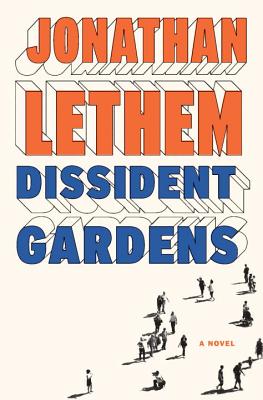
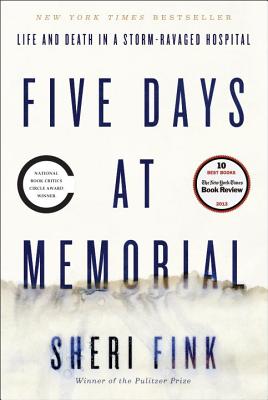

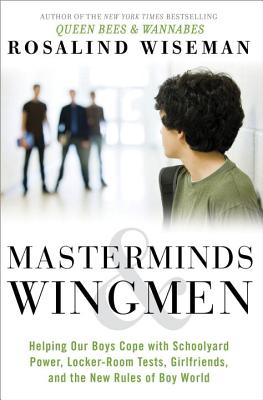

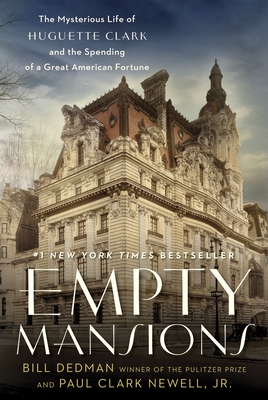
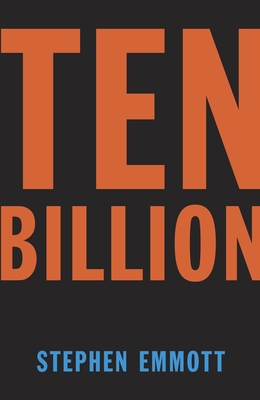
No comments:
Post a Comment